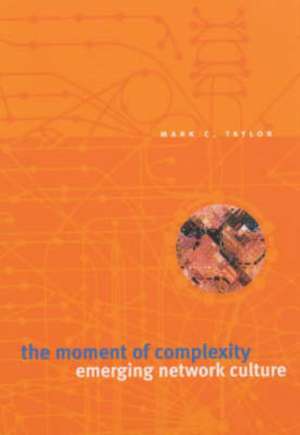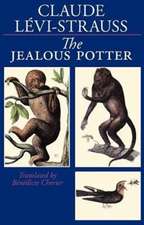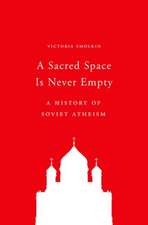The Moment of Complexity: Emerging Network Culture
Autor Mark C. Tayloren Limba Engleză Paperback – 15 sep 2003
"The Moment of Complexity is a profoundly original work. In remarkable and insightful ways, Mark Taylor traces an entirely new way to view the evolution of our culture, detailing how information theory and the scientific concept of complexity can be used to understand recent developments in the arts and humanities. This book will ultimately be seen as a classic."-John L. Casti, Santa Fe Institute, author of Gödel: A Life of Logic, the Mind, and Mathematics
The science of complexity accounts for that inscrutable mix of chaos and order that governs our natural world. Complexity explains how networks emerge and function, how species organize into ecosystems, how stars form into galaxies, and how just a few sequences of DNA can account for so many different life forms. Recently, the idea of complexity has taken the worlds of business and politics by storm. The concept is used to account for phenomena as varied as the behavior of the stock market, the response of voting populations, and the effects of risk management. Even Disney has used complexity theory to manage crowd control at its theme parks.
Given the startling development of new information technologies, we now live in a moment of unprecedented complexity, an era in which change occurs faster than our ability to comprehend it. With The Moment of Complexity, Mark C. Taylor offers a timely map for this unfamiliar terrain opening in our midst, unfolding an original philosophy through a remarkable synthesis of science and culture. According to Taylor, complexity is not just a breakthrough scientific concept, but the defining quality of the post-Cold War era. The flux of digital currents swirling around us, he argues, has created a new network culture with its own distinctive logic and dynamic.
Drawing on resources from information theory and evolutionary biology, Taylor explains the operation of complex adaptive systems in social and cultural processes and captures a whole new zeitgeist in the making. To appreciate the significance of our emerging network culture, he claims, we need not only to understand contemporary scientific and technological transformations, but also to explore the subtle influences of art, architecture, philosophy, religion, and higher education. The Moment of Complexity, then, is a remarkable work of cultural analysis on a scale rarely seen today. To follow its trajectory is to learn how we arrived at this critical moment in our culture, and to know where we might head in the twenty-first century.
The science of complexity accounts for that inscrutable mix of chaos and order that governs our natural world. Complexity explains how networks emerge and function, how species organize into ecosystems, how stars form into galaxies, and how just a few sequences of DNA can account for so many different life forms. Recently, the idea of complexity has taken the worlds of business and politics by storm. The concept is used to account for phenomena as varied as the behavior of the stock market, the response of voting populations, and the effects of risk management. Even Disney has used complexity theory to manage crowd control at its theme parks.
Given the startling development of new information technologies, we now live in a moment of unprecedented complexity, an era in which change occurs faster than our ability to comprehend it. With The Moment of Complexity, Mark C. Taylor offers a timely map for this unfamiliar terrain opening in our midst, unfolding an original philosophy through a remarkable synthesis of science and culture. According to Taylor, complexity is not just a breakthrough scientific concept, but the defining quality of the post-Cold War era. The flux of digital currents swirling around us, he argues, has created a new network culture with its own distinctive logic and dynamic.
Drawing on resources from information theory and evolutionary biology, Taylor explains the operation of complex adaptive systems in social and cultural processes and captures a whole new zeitgeist in the making. To appreciate the significance of our emerging network culture, he claims, we need not only to understand contemporary scientific and technological transformations, but also to explore the subtle influences of art, architecture, philosophy, religion, and higher education. The Moment of Complexity, then, is a remarkable work of cultural analysis on a scale rarely seen today. To follow its trajectory is to learn how we arrived at this critical moment in our culture, and to know where we might head in the twenty-first century.
Preț: 241.56 lei
Nou
Puncte Express: 362
Preț estimativ în valută:
46.23€ • 48.08$ • 38.16£
46.23€ • 48.08$ • 38.16£
Carte tipărită la comandă
Livrare economică 14-28 aprilie
Preluare comenzi: 021 569.72.76
Specificații
ISBN-13: 9780226791180
ISBN-10: 0226791181
Pagini: 352
Ilustrații: 25 halftones, 20 line drawings
Dimensiuni: 152 x 229 x 28 mm
Greutate: 0.48 kg
Ediția:1
Editura: University of Chicago Press
Colecția University of Chicago Press
ISBN-10: 0226791181
Pagini: 352
Ilustrații: 25 halftones, 20 line drawings
Dimensiuni: 152 x 229 x 28 mm
Greutate: 0.48 kg
Ediția:1
Editura: University of Chicago Press
Colecția University of Chicago Press
Notă biografică
Mark C. Taylor is professor of religion and chair of the Department of Religion at Columbia University. His most recent book is After God, also published by the University of Chicago Press.
Cuprins
List of Figures
Acknowledgments
Introduction
1. From Grids to Networks
Collapsing Walls
The Edge of Chaos
Grid Work
Superficial Complexity
Net Work
2. Critical Emergency
Politics and Criticism
Power and Structures
Generational Gaps
Digital Divide
Decoding the Real
3. Strange Loops
True Lies
Machines and Death
Beauty of Organisms
Undecidable Openings
4. Noise in Formation
Buzz of Information
Information Ages
Information and Communication
Time and Uncertainty
Shifty Static
5. Emerging Complexity
Real Close
Crystals and Smoke
Implication of Complexity
E-mergence
Birds and Bees
6. Evolving Complexity
Ant Smarts
Complex Adaptive Systems
E-volution
Species of Origin
Morphing
Punctuation
7. Screening Information
How This Book Is Being Written
Channeling Experience
Culturing Networks
Viral Webs
Cybergnosis
Incarnational Networks
Coda. The Currency of Education
Practicing Theory
Education Business
Useful and Useless Education
Critical Faculties
Networking Education
Notes
Bibliography
Index
Acknowledgments
Introduction
1. From Grids to Networks
Collapsing Walls
The Edge of Chaos
Grid Work
Superficial Complexity
Net Work
2. Critical Emergency
Politics and Criticism
Power and Structures
Generational Gaps
Digital Divide
Decoding the Real
3. Strange Loops
True Lies
Machines and Death
Beauty of Organisms
Undecidable Openings
4. Noise in Formation
Buzz of Information
Information Ages
Information and Communication
Time and Uncertainty
Shifty Static
5. Emerging Complexity
Real Close
Crystals and Smoke
Implication of Complexity
E-mergence
Birds and Bees
6. Evolving Complexity
Ant Smarts
Complex Adaptive Systems
E-volution
Species of Origin
Morphing
Punctuation
7. Screening Information
How This Book Is Being Written
Channeling Experience
Culturing Networks
Viral Webs
Cybergnosis
Incarnational Networks
Coda. The Currency of Education
Practicing Theory
Education Business
Useful and Useless Education
Critical Faculties
Networking Education
Notes
Bibliography
Index





















